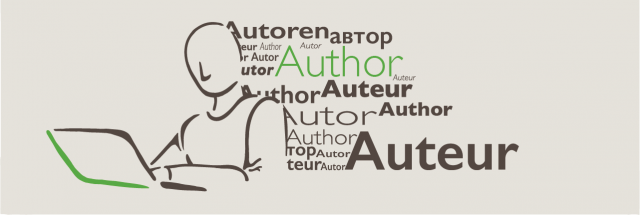Nineteen-year-old Ellen Doherty from Derry/Londonderry in Northern Ireland was never going to choose a safe career path. Not for her was the security of a nine-to-five lifestyle. Rather, she has chosen the adrenalin rush of journalism.
Doherty, a first-year media student, gave the opening speech of welcome at a conference held in the city, 20 March, which drew media figures from England, Bosnia, Poland, and the USA. It was organised by three of her tutors at the North-West Institute of Further and Higher Education, in conjunction with the International Communications Forum, under the theme 'Kneading the story--media under the microscope'.
'The information wars keep us busy taking sides,' asserted Doherty, who lives in the city where Nothern Ireland's 'Troubles' began in 1968, and in a country where the media has sometimes inflamed sectarian divides. 'We need to have objective standards that inform the way we report. Our tolerance for violence, moral confusion, inequality and lies is not a precedent we want to perpetuate.' She hoped that young media reporters, embracing the 21st century, would not have to report on countless tragedies.
Sarajevo journalist Senad Kamenica said that the media in the Balkans had also spoken 'the language of hatred' for political ends. It had not made him proud to be a journalist and there was still a need for greater ethnic integration in the media. 'Although we know that the atmosphere of hatred and death is not the way towards reconciliation, forgiveness and a just peace, there are still few signs in our media that we are leaving it behind.'
People in the Balkans were living in times 'burdened with the by-products of the factory of evil,' continued Kamenicha, who is head of international affairs for Bosnia-Herzegovina television. 'The struggles that await us are so much harder than the ones we left behind: the struggle within ourselves to transform ourselves, and then to transform our institutions.'
Northern Ireland was another of Western Europe's 'most challenging news areas', said John Coulter, who lectures in investigative journalism at Queen's University, Belfast. Local journalists might have been at school with people now classified as terrorists, and would know their contacts on a first name basis. For such local investigative reporters there was no fast plane out of Belfast airport, and 'the lambs of accuracy and objectivity may have to be sacrificed on the altars of common sense and personal survival'. Sometimes it was necessary to obscure the identity of confidential sources.
Yet protecting such sources was a hallmark of a free press, he continued. This posed the dilemma: 'if journalists are in possession of confidential information, at what point do they stop being responsible journalists and become responsible citizens'' In what circumstances did they pass on information to the authorities' Coulter said that he was as firmly committed today to source protection as he was in 1991 when, as an investigative journalist himself, he was interrogated by the RUC (Royal Ulster Constabulary). Above all, the individual journalist's freedom of choice needed to be respected. He aimed to teach 'a conscienc-led curriculum'.
Ray Mullan, a former leader writer on the Irish News who is now the information director for Northern Ireland's Community Relations Council, called on the media to be 'proactively anti-sectarian'. 'How much expection of conflict resolution is there in the media'' he asked.
Other speakers included BBC TV news anchorman Martyn Lewis, and Guardian media writer Roy Greenslade, who deplored a 'defining moment' in the British press for its scant coverage of the murder of young people in Northern Ireland, soon after massive coverage of the killing of an English boy in Warrington by an IRA bomb.
Interviewed afterwards, Faustina Starrett, one of the conference organizers, said the aim had been to 'ask Northern Ireland to look at itself as part of the bigger picture and then it would begin to understand its own motivations'. She hoped that young journalists entering the profession would be 'realistic, disciplined and dedicated'. And what did Ellen Doherty make of the day' 'I realise that to be a good journalist you need courage,' she said, 'and that journalism is not a career but a vocation'.
Two days later, international participants took parrt in a media seminar at the Newman Institute in Ballina, in the Irish Republic, held to mark the launch of the institute's new Mayo Centre for Media and Communications. The centre aims to improve relations between the media and the Catholic Church in Ireland. The Catholic writer Mary Kenny attacked sections of the Irish media for their 'deplorable, one-sided and small-minded' coverage of an address given by Archbishop Desmond O'Connell of Dublin, over his concerns about human cloning. The issue was not just about contraception but 'the technological management of the production of people', said Kenny. Such developments, which touched profoundly on the values inherited from the Judeo-Christian tradition, needed more informed coverage.
The media did not always get it right, admitted Christy Loftus, President of the National Union of Journalists, 'but they do not always get it wrong either'. He warned against the tendency to 'shoot the messenger'.
William Stainsby, President of the Newman Institute, believed that the media and the church could, by working together, serve the people in their search for meaning and fulfilment. 'Together, like two conjoined wings, they can help the human spirit to rise to the contemplation of what it means to be authentically human.'
Northern Ireland journalist and author Peter Hannon spoke of his vision that Ireland, north and south, could restore faith to the world, 'by the way we live in our relationships'.

